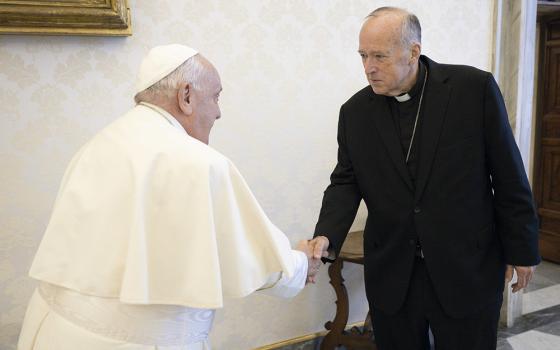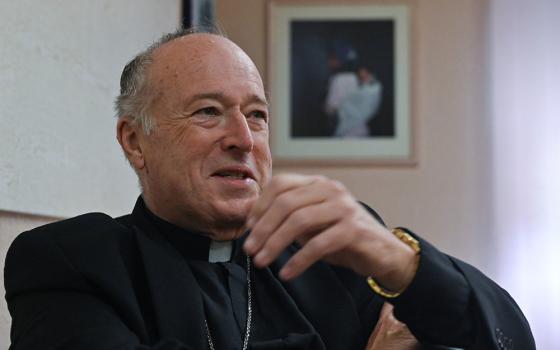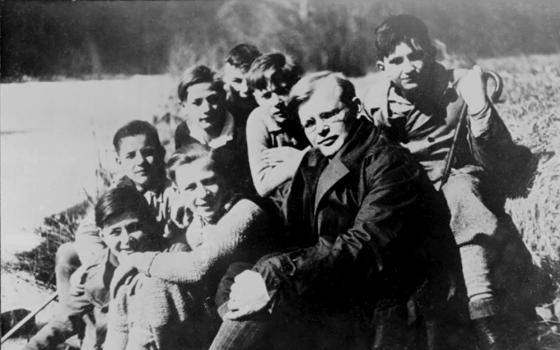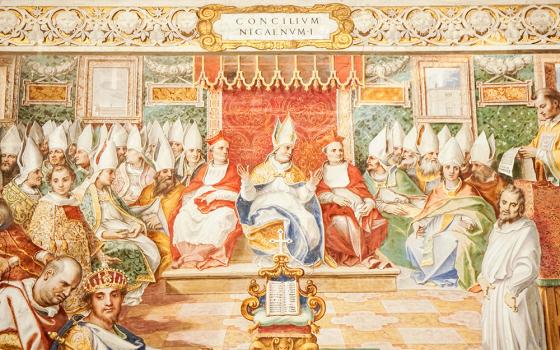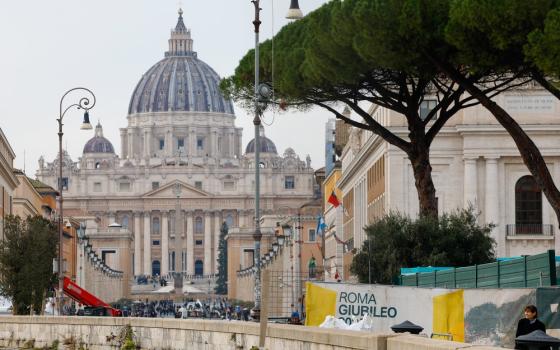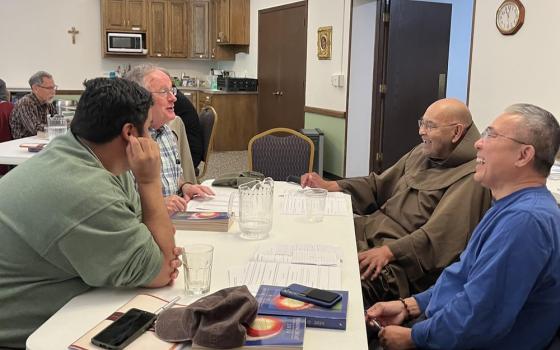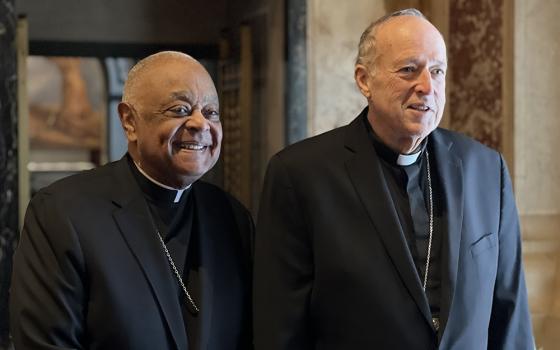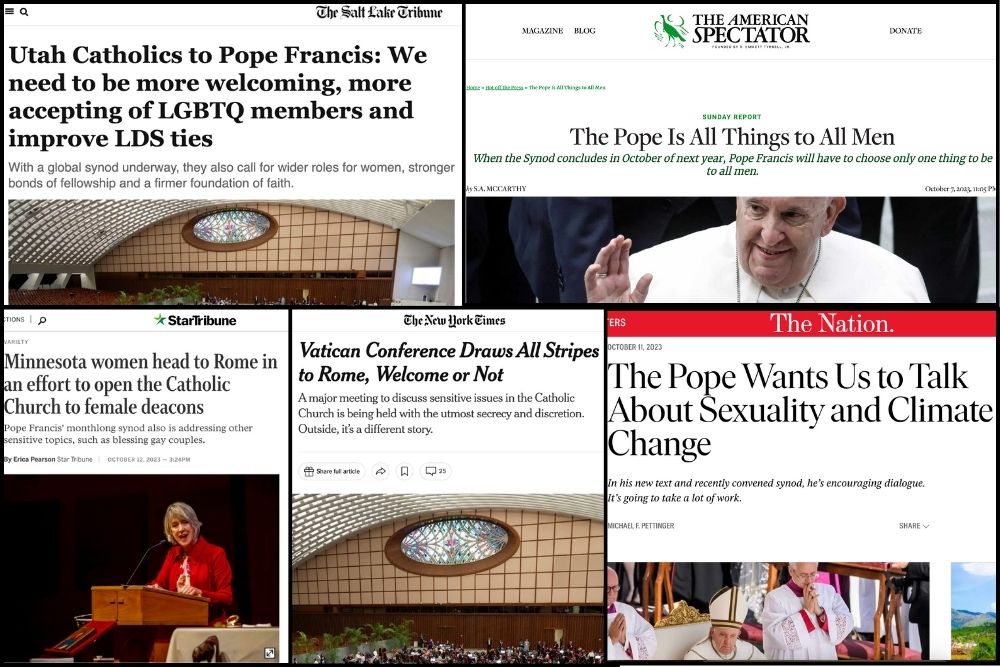
(NCR)
Davenport, Iowa, residents who subscribe to their daily community newspaper have in recent weeks read a local columnist's opinion that Pope Francis is "going back to the very beginning of Christianity" by convening the Oct. 4-29 Synod of Bishops on synodality.
Others who live in large cities like Boston, New York, Minneapolis-St. Paul and Salt Lake City have also seen news coverage, editorials and op-eds on the synod in their own metropolitan newspapers. And those who subscribe to national magazines that focus on politics and culture, such as The Nation and The American Spectator have also learned about the synod and what it could mean for the Catholic Church.
"The smorgasbord of juicy topics at the confidential Vatican meeting, known as the Synod on Synodality, has drawn every ideological stripe of Catholic activist, culture warrior and special interest group," The New York Times told its readers in an Oct. 12 dispatch from Rome.
Local newspaper reporters and columnists, as well as editorial boards across the United States, have taken notice of the synod, informing audiences that may not follow Catholic media that the Vatican is hosting a landmark gathering that could change how the church lives out its mission in the modern world.
"Clearly, non-Catholics have an interest and a stake in how the Catholic Church regards women and how it treats members of the LGBTQ community. It's significant that the synod will include the voices of women as full participants in its deliberations about the life of the church," the Star-Tribune newspaper in Minnesota wrote in an Oct. 11 editorial.
On Oct. 12, the Star-Tribune published a news story highlighting a group of Catholic women from the Twin Cities who were traveling to Rome as members of Discerning Deacons, an organization that fosters dialogue on the question of the Catholic Church ordaining women as deacons.
Along with matters pertaining to ministering to LBTQ people, the possibility of ordaining women as deacons is one of several hot-button issues being discussed in the synodal assembly in Rome. The synod will meet for a second session in October 2024. Both assemblies follow a two-year global consultation process that some Vatican observers have described as potentially "the biggest consultation exercise in human history."
In a Oct. 8 news story, The Salt Lake Tribune highlighted what Utah Catholics identified as their biggest concerns during the synodal gatherings in Utah: being more welcoming and accepting of LGBTQ people, and improving ties with members of the Church of Jesus Christ of Latter-day Saints.
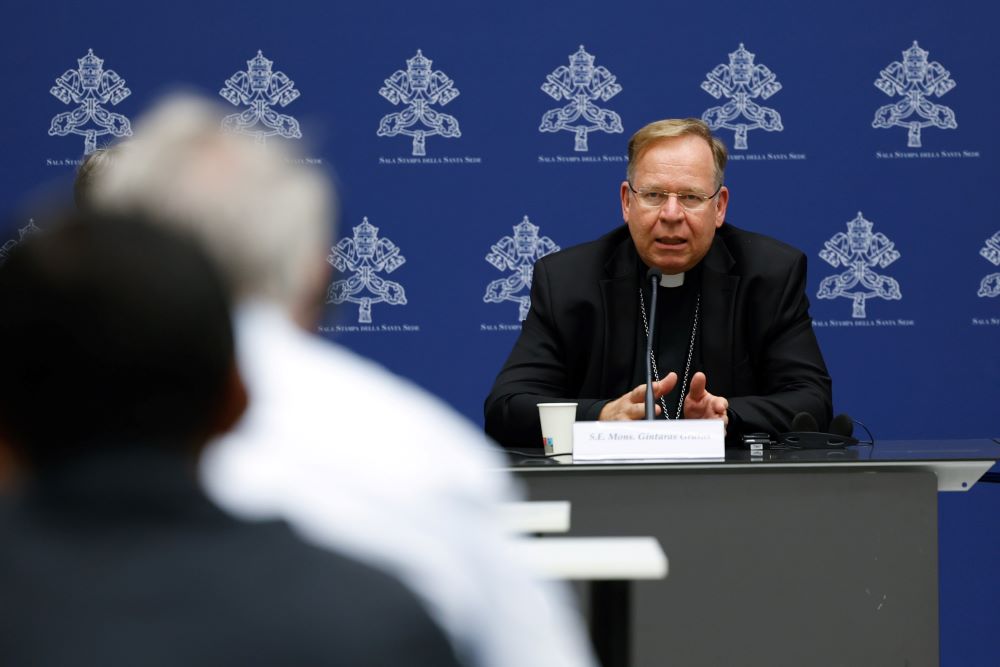
Archbishop Gintaras Grušas of Vilnius, Lithuania, speaks during a briefing about the assembly of the Synod of Bishops at the Vatican Oct. 20. (CNS/Lola Gomez)
The Salt Lake Tribune also interviewed a local diocesan priest, Fr. John Evans, who told the newspaper that Francis had made a historic decision to open up participation and voting in the synod beyond bishops.
"The world-level delegates to a synod have always been bishops and cardinals, but now we have non-bishop delegates, including priests and deacons, laymen and women, religious sisters and men and non-Catholics participating," said Evans, who coordinated the synod planning in Utah.
Some national secular media outlets have published analyses of the synod. Writing Sept. 18 in The New Yorker, Paul Elie framed synodal tensions in generational terms, noting that several leading American conservative Catholic leaders like New York Cardinal Timothy Dolan and Cardinal Raymond Burke, an outspoken Francis critic, are at or nearing the ages when they will have to submit their episcopal resignations at 75, and then prohibited from voting in papal conclaves upon turning 80.
"For the traditionalists, then, the synod is something like a last stand, where the legacy of two Popes just past will converge with the determination of the present one," Elie wrote.
And mirroring how Catholic media outlets across the ideological spectrum over the last year have opined on the synod, liberal and conservative Catholics have penned op-eds and analyses in leading national publications to express their hopes or fears about what the synod could unleash.
"Its purpose is downright revolutionary for our era: [Pope Francis is] trying to get the Catholic Church's warring camps to listen to each other," Washington Post political columnist E.J. Dionne Jr. wrote of the synod in his weekly column on Oct. 8.
Cardinal Seán P. O'Malley of Boston listens during the assembly of the Synod of Bishops in the Vatican's Paul VI Audience Hall Oct. 10. (CNS/Vatican Media)
Describing himself as a progressive Catholic, Dionne used his secular newspaper platform to inform his national audience of the hopes that he and his liberal co-religionists have about the synod, in which ordained, religious and lay delegates are discussing controversial subjects like LGBTQ ministry and the possibility of ordaining women as deacons.
"Many progressive Catholics — with whom I identify — hope a three-year process that began with consultations among Catholics around the world could culminate in Vatican III and a new round of major reforms," wrote Dionne. His hoped-for reforms include married men and women being ordained as priests, the church changing its doctrines on LGBTQ and divorced people, and a greater emphasis on social justice and environmental concerns.
But tempering his hopes, Dionne told The Washington Post's readers that the synod "is unlikely to meet liberal hopes or justify conservative fears," though adding that that possible conclusion "will not reassure" Francis' critics.
Advertisement
One such papal critic, Francis Meier, took to The Wall Street Journal's conservative-leaning editorial board's opinion pages on Oct. 5 to predict that the synod is "unlikely" to unite Catholics. He also claimed the existence of "widespread unease" about the synod's "real goals."
"The global consultation process preceding this month's meeting suffered from low participation among the faithful and the appearance of theatrics masking predetermined changes in sensitive matters of Catholic discipline and belief," wrote Meier, a former longtime aide to retired Philadelphia Archbishop Charles Chaput, an archconservative. Meier is now a senior fellow in Catholic studies at the Ethics and Public Policy Center, a conservative think tank.
Meanwhile, The Boston Globe on Sept. 22 published an essay by Kelly Meraw, a Catholic woman who leads pastoral care, music and liturgy at her Massachusetts parish. Meraw wrote that the synod presents the Catholic Church with "a rare opportunity to discern our future together."
Meraw also wrote that the synod represents "a daring hope" that "while we hold fast to the doctrinal truths of who we are as a church, there are still paths available for women in ministry — paths that are a return to tradition, not a departure from it."

